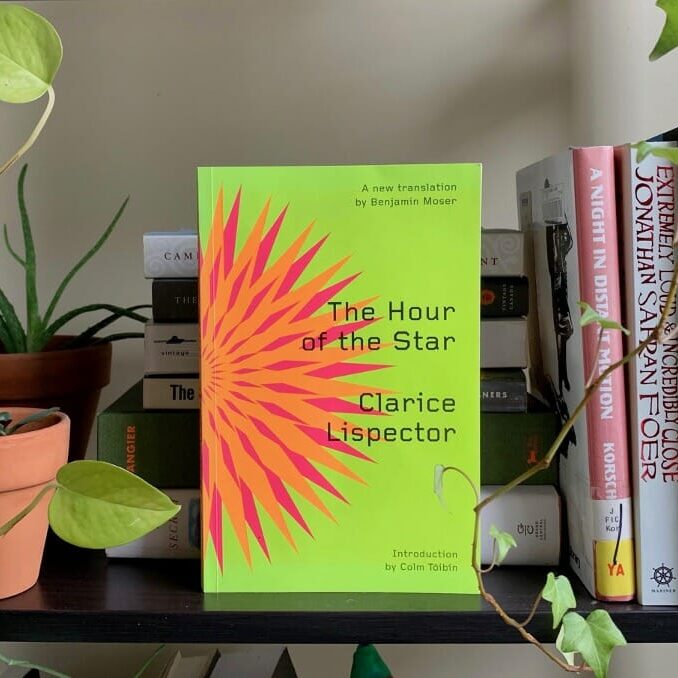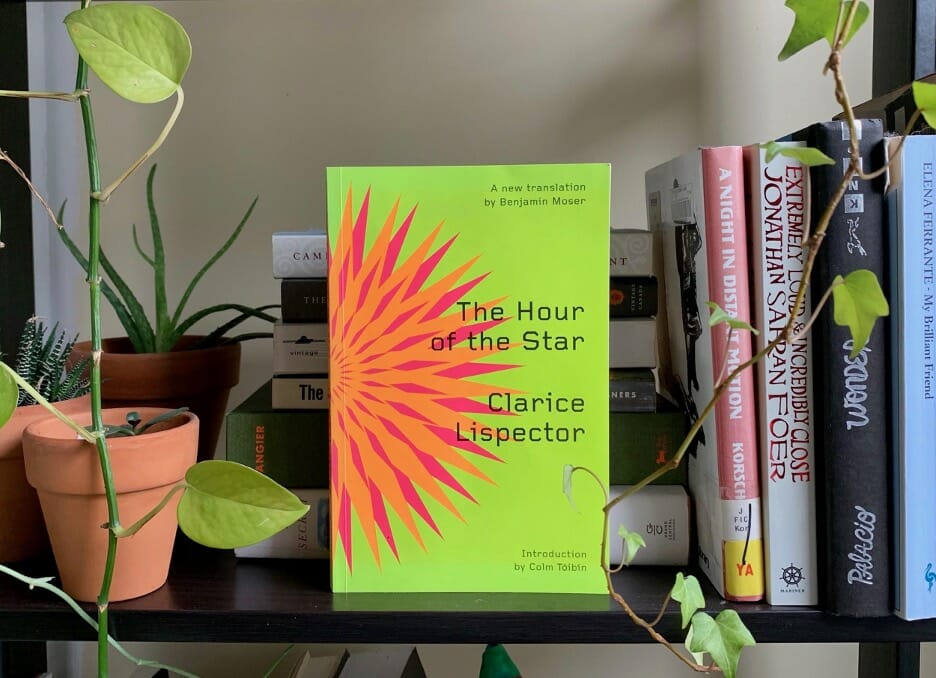
Read This: The Hour of the Star
Clarice Lispector’s novella touches on hardship and happiness

This summer we read and loved The Hour of the Star by one of Brazil’s most brilliant novelists: Clarice Lispector. We like to recommend books you can read during your studies, and luckily, this month’s read is only 77 pages! Although it’s short, it’s sure to have an impact.
About the author
Lispector spent the final years of her life writing The Hour of the Star, which was published two months before her death in 1977. Much of Lispector’s writing is semi-autobiographical, incorporating emotions and thoughts from her childhood and the many tragedies that followed in her adult years.
Although she was born in the Ukraine to Jewish emigrants, Lispector and her family were forced to emigrate to Brazil due to the violence of the Russian Civil War. When she was nine years old, Lispector’s mother passed away, and the family once again moved from Recife, Brazil to Rio de Janeiro.
Irish writer Colm Tóibín, in his introduction to The Hour of the Star, describes Lispector as “unliterary.” She never studied writing or spent much time reading. She is unlike any other writer: Her word choices are bizarre and brilliant, her style surreal. She forged her own path to becoming the novelist she is today and thank goodness she did. Every written word feels deliberate in a forceful way; it compels you to believe none of it was written as an afterthought.
The plot
The novella is about a young woman named Macabéa who lives in the slums of Rio de Janeiro. She is poor, uneducated and knows very little about the world around her. She also doesn’t seem to realize how terrible her life is. Instead, she claims to be happy.
The story is narrated by Rodrigo S.M., a writer who feels an intense urgency to record her story. He struggles to portray her properly, but self-identifies as an unreliable narrator. Again and again, he repeats how ignorant and helpless Macabéa is and calls her an “accident of nature.” But it’s clear Rodrigo cares deeply for Macabéa and is writing her story out of some deep connection he can’t understand. In his own words, “she didn’t have that delicate thing called charm. I’m the only one who finds her charming. Only I, her author, love her.”
Lispector explores themes of belonging and agency through Macabéa. The narrator makes it clear: “the only thing she desired was to live.” She drifts through her life listening to her clock radio, and eating a diet that consists exclusively of hot dogs and coffee. She thinks she is happy only because “she did not know she existed. . . therefore she wasn’t aware of her own unhappiness.” Lispector’s decision to write a story about someone who is supposed to be completely uninteresting and unrelatable is a lot of what makes this story so phenomenal. Macabéa is an unsung hero in her own weird way.
This book was one of the most refreshing, confusing and astounding books we’ve read in a long time. It’s hard to believe someone as talented as Lispector just decided to pick up a pen one day and start writing. If you’re interested in a rollercoaster of a novella, there’s a few copies at the Killam Memorial Library, or you can order one from Bookmark or other retailer if you’re looking to buy it for yourself or a friend!






